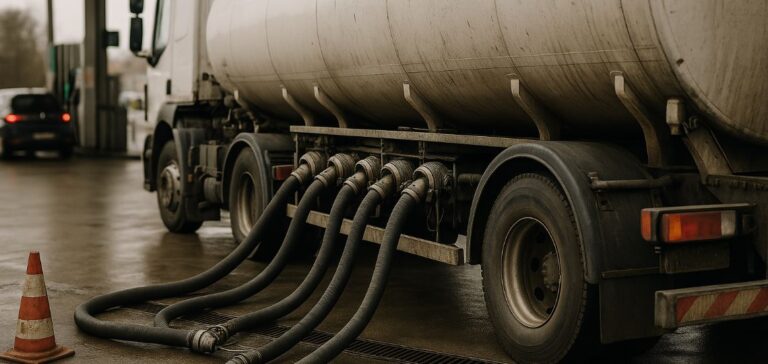Road fuel deliveries in France fell by 2.8% in March 2025 compared to the same period the previous year, reaching a total volume of 3.817 million cubic metres. This decline contributed to a 1.9% decrease in the first quarter. Over a rolling 12-month period, from April 2024 to March 2025, the market remained stable with a variation of -0.2% and a cumulative volume of 47.6 million cubic metres, according to figures published by the Comité Professionnel du Pétrole (CPDP).
Trends across petroleum product segments
This contraction is mainly due to a marked 5.4% decrease in diesel deliveries, which was not offset by a 3.5% increase in unleaded petrol volumes. As a result, diesel’s share of national road fuel consumption dropped by 1.9 percentage points to 68.9% in March 2025.
In contrast, the jet fuel segment continued its upward trend. Deliveries rose by 7.7% in March 2025 compared to March 2024, reaching 0.671 million cubic metres. Over the entire first quarter, this upward trend resulted in a 6.9% increase.
Rise in non-road diesel and domestic heating oil
Non-road diesel deliveries saw a significant rise of 20.8%, totalling 0.444 million cubic metres. Domestic heating oil volumes also increased by 10.7%, reaching 0.384 million cubic metres for March 2025.
Across all categories, energy petroleum product deliveries totalled 4.504 million tonnes in March 2025, representing a slight increase of 0.7% compared to March 2024. This upward trend remained moderate over the quarter with a growth of 0.2%, while reaching 1.1% on a rolling 12-month basis, with a volume of 55.7 million tonnes.






















